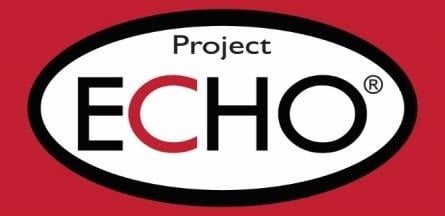

ECHO Autism
Among the resources for providers at the Center for Autism Spectrum Disorders is ECHO Autism (Extension of Community Health Outcomes). ECHO Autism creates a virtual learning network that aims to "move knowledge, not patients" using a telementoring format that provides access to a hub of autism specialists to support community providers to diagnose, treat and care for autism spectrum disorder (ASD) children and their families.

How Echo Autism Works
ECHO Autism connects providers with autism specialists to support the diagnosis, treatment and care of children with autism spectrum disorder.
Echo Autism Features
- A convenient, web-based, small-group format
- An environment to learn and share best practices for autism care, connecting with community resources and family/caregiver support
- Reduced costs for families and providers by limiting travel, creating more efficient visits and shorter wait times for care
- A long-term solution in communities, including under-resourced areas where access to autism specialists is limited, by building local capacity for autism care
Current ECHO Autism Clinic
The Center for Autism Spectrum Disorders offers ECHO Autism clinics for primary care providers, diagnostic and treatment specialists and educators and early care providers.
Evaluation and Treatment Planning Tools for Providers in the Medical Setting
This clinic takes place from July 12 - December 20, 2024 occurring over 12 Fridays from 12 - 1 p.m. EST.
View curriculum information below for the specific dates and session titles.
We offer CEs for Psychology, Social Work, Speech and Medical.

Register Now
To register for our evaluation and treatment planning tools clinic, please email our research coordinator Hannah Behar.
Curriculum
July 12, 2024
Framing and Triaging Support Needs in Autism
July 26, 2024
Evaluation Needs
CARS-2 ST
August 9, 2024
Evaluation Needs
CARS-2 HF
August 23, 2024
Family Support Needs
September 6, 2024
Behavioral Support Needs
Social/Behavioral/Adaptive
September 20, 2024
Communication Needs
October 4, 2024
Sensory Needs
October 18, 2024
School Needs
November 1, 2024
Behavior Needs
Role of Executive Functioning in Adaptive Functions and Emotional-Behavioral Functioning
November 15, 2024
Well-Being Needs
December 6, 2024
Co-occurring Conditions and Safety Needs
December 20, 2024
Transition to Adulthood Needs
What Providers Need to Participate
Benefits of ECHO Autism
The ECHO Autism Team at Children's National Hospital
Disclosures About Your Information

Center for Autism Guidebook for Medical Providers
The Children’s National Center for Autism and ECHO Autism teams compiled the content covered in past ECHO Autism sessions into this guidebook for medical providers who work with autism families.






